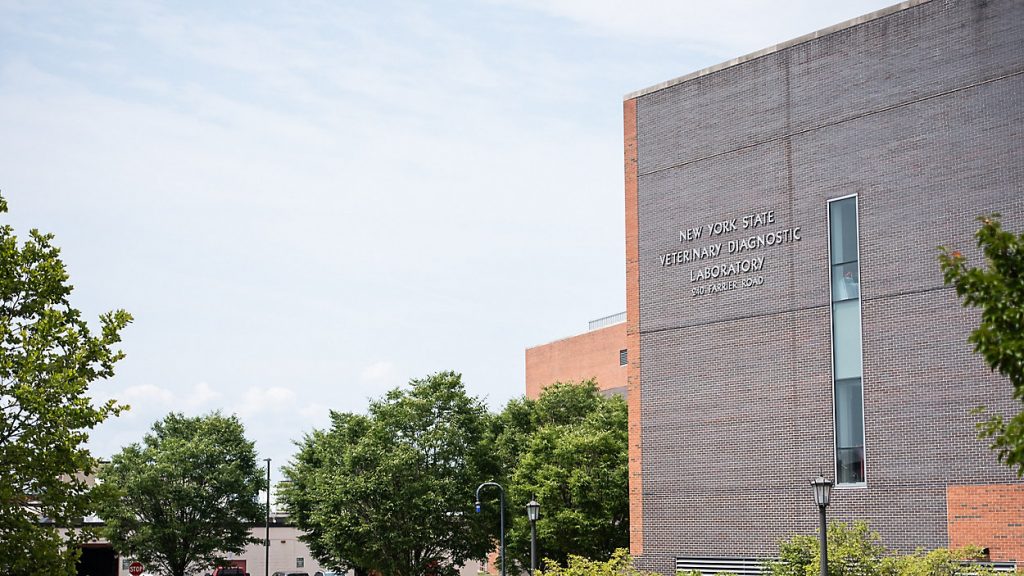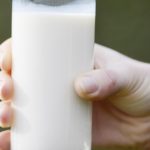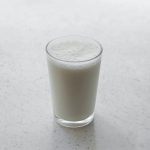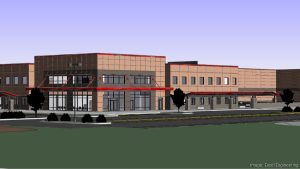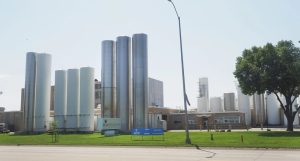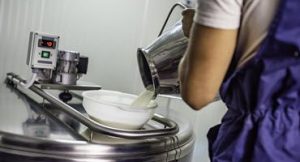
While there are no confirmed cases of avian flu among New York’s dairy cattle, researchers at Cornell University will utilize state funds on the frontlines to help fight the outbreak.
New York legislators gave $19.5 million on Monday to expand the Animal Health Diagnostic Center at Cornell University, just months after avian influenza was confirmed to be spreading to dairy cattle.
“The need to grow this facility and to be able to handle all the needs that they’re dealing with today with HPAI and everything else, was apparent,” said New York Commissioner of Agriculture Richard Ball.
In March, it was confirmed by the Animal Health Diagnostic Center that a dairy herd in Texas tested positive for the highly pathogenic avian influenza.
“We have this new phenomenon to think about with dairy herds coming down with HPAI, which we thought was restricted to the poultry industry. The need and demands on the diagnostic lab to help with that understanding [is important],” Ball said.
New York has not had any positive cases of HPAI among dairy cattle, but 13 other states have, which concerns the commissioner.
“Lactating dairy animals moving between states need to be tested before they can do that movement, so we’re watching that very closely. We’ve been focusing on biosecurity with our dairy industry in a very big way,” Ball said.
Pasteurization of milk is vital to killing the virus in milk.
“We tested and tested nationally and in the state. These people here did a lot of that testing, so we’re good. We have a safe milk supply, but we still need to understand more about how this is moving around,” Ball said.
Diego Diel, director of virology laboratory at the Animal Health Diagnostic Center, was one of the first to confirm the mammal-to-mammal spread of HPAI after receiving samples of milk from farms in Texas.
“We tested those samples when they first arrived, targeting the normal pathogens that cause respiratory diseases in cattle, but the sequences came back all negative. So then we decided to run next generation sequencing on those samples, and that’s how we detected avian influenza sequences,” Diel said.
While researchers don’t know exactly how the virus spreads from cow to cow, Diel suspects it could be through aerosols created during the milking process as cattle shed a high level of the virus in milk.
“That is one of the ways that influenza could transmit. The other possibility could just be mechanical transmission through milking,” Diel said.
When infected cows are milked, the milking machine goes to the next animal, potentially infecting them, causing a drop in milk production. Diel said to his knowledge, there have been no confirmed cases among beef cattle.
“I think they would probably be less susceptible because of the tropism of the virus for the mammary glands. Potentially, lactating beef cows could be susceptible and transmit the virus, but I think it would be more limited because of that difference,” Diel said.
His research found that domesticated cats and raccoons also tested positive for the virus.
New York requires lactating dairy cattle attending county and state fairs to have a negative HPAI test within seven days. Many of these tests will come through the Animal Health Diagnostic Center.
“Let’s not contribute to making something worse,” Ball said. “It’s a totally understandable, and several states have adopted the same policies.”
Poultry going to fairs also will have regulations in place, and while cattle can survive the HPAI, birds cannot.
“For our cows, it’s a challenge, but for our poultry, it’s life and death and the only remedy is depopulation,” Ball said.
You can now read the most important #news on #eDairyNews #Whatsapp channels!!!
🇺🇸 eDairy News INGLÊS: https://whatsapp.com/channel/0029VaKsjzGDTkJyIN6hcP1K
